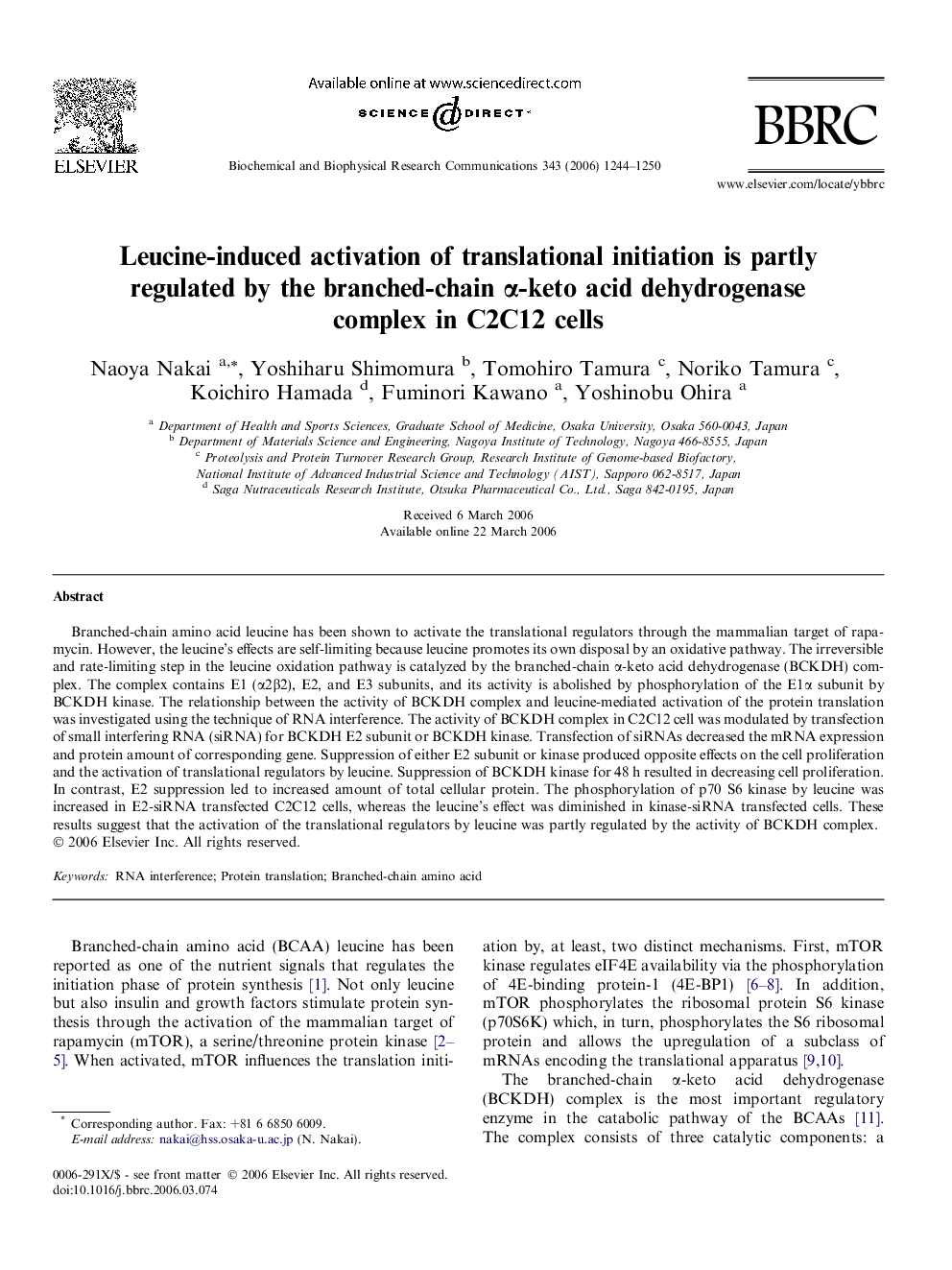| Article ID | Journal | Published Year | Pages | File Type |
|---|---|---|---|---|
| 1939598 | Biochemical and Biophysical Research Communications | 2006 | 7 Pages |
Branched-chain amino acid leucine has been shown to activate the translational regulators through the mammalian target of rapamycin. However, the leucine’s effects are self-limiting because leucine promotes its own disposal by an oxidative pathway. The irreversible and rate-limiting step in the leucine oxidation pathway is catalyzed by the branched-chain α-keto acid dehydrogenase (BCKDH) complex. The complex contains E1 (α2β2), E2, and E3 subunits, and its activity is abolished by phosphorylation of the E1α subunit by BCKDH kinase. The relationship between the activity of BCKDH complex and leucine-mediated activation of the protein translation was investigated using the technique of RNA interference. The activity of BCKDH complex in C2C12 cell was modulated by transfection of small interfering RNA (siRNA) for BCKDH E2 subunit or BCKDH kinase. Transfection of siRNAs decreased the mRNA expression and protein amount of corresponding gene. Suppression of either E2 subunit or kinase produced opposite effects on the cell proliferation and the activation of translational regulators by leucine. Suppression of BCKDH kinase for 48 h resulted in decreasing cell proliferation. In contrast, E2 suppression led to increased amount of total cellular protein. The phosphorylation of p70 S6 kinase by leucine was increased in E2-siRNA transfected C2C12 cells, whereas the leucine’s effect was diminished in kinase-siRNA transfected cells. These results suggest that the activation of the translational regulators by leucine was partly regulated by the activity of BCKDH complex.
